Chameleon People - [3]
I asked him if he knew that I was a policeman.
He gave a feeble nod and a sheepish smile.
There was yet another ring on the doorbell. It was longer and louder this time.
I kept my eyes trained on my young guest, as I picked up the intercom.
This time I recognized the familiar voice of a constable. He said that a suspect had disappeared into my building and asked if everything was under control inside.
I answered yes and once again pressed the door-opener.
My guest remained seated on the floor, but had now managed to catch his breath again.
‘I had to speak to you before they caught me,’ he said.
His voice was almost a whisper and was drowned out by heavy steps on the stairs.
‘And what did you want to tell me?’ I asked.
‘That I’m innocent,’ he whispered.
And then it was as if he had said all he wanted to say. He sat there quietly on the floor by the doormat, without another word.
I opened the door when they knocked and assured them that everything was under control. ‘They’ being three slightly puffed policemen, who briefly shook my hand.
I watched them put handcuffs around my guest’s skinny wrists. He did not resist in any way, and suddenly seemed utterly disinterested in what was going on.
The young man had one striking physical feature: a reddish-brown birthmark that covered the greater part of the right-hand side of his neck. Of course, that could not help us identity him there and then. And there was nothing in the boy’s pockets that could tell us who he was. In fact, we found very little of interest. But the one thing we did find was both damning and alarming.
The boy on the red bicycle had a sharp kitchen knife in the left pocket of his jacket and both the handle and the blade were sticky with blood.
I realized then that the situation was serious indeed, but still did not join up the dots until one of the policemen heaved a sigh of relief and remarked: ‘You’ve truly outdone yourself this time, DI Kolbjørn Kristiansen. You have single-handedly caught Fredriksen’s murderer without even leaving your flat!’
I spun round and asked the policeman if Per Johan Fredriksen had died. He looked at me gravely and replied that the politician had been declared dead at the scene. He had been stabbed straight through the heart. It was done efficiently and apparently with a good deal of hate.
Given this information, I looked at the boy on my floor with some scepticism. He did not avert his eyes or blink.
‘I didn’t kill him. He was dead when I went back,’ was the only thing he said.
And he then repeated this three times.
After the third, one of the policemen commented laconically that they could categorically dismiss his statement that Fredriksen had been dead when he got there. Two witnesses who were passing had seen the young man standing at a street corner in Majorstuen as the politician walked by. The young man had been visibly agitated, whereas Fredriksen had calmly exchanged a few words with him, and then carried on.
A few minutes later, the young man had been seen bending over Fredriksen further down the same block, with the knife in his hand. He then fled when three further witnesses rounded the corner. It had taken them a few minutes to contact the police and alert any patrol cars in the area. However, one of them had then spotted the fleeing cyclist in the quieter roads around Hegdehaugen.
We all looked sharply at the young arrestee.
‘I didn’t kill him. He was already dead when I went back,’ he said yet again in a staccato voice.
He fixed me with a remarkably steady and piercing look when he said this.
Then he closed his lips tight and turned his dark eyes to stare pointedly at the wall.
It occurred to me that I had never come across such a clear-cut murder case. And yet the adrenalin was pumping given the evening’s unexpected and dramatic turn in my own home, and the case was not closed yet, as the murderer’s identity and motive were unknown. It struck me as rather odd that the young man had known where I lived. And it was quite simply mystifying that he had chosen to flee here, having murdered a top politician. Consequently, I accompanied them in the car down to the main police station.
III
It did not take long to drive there. The arrestee sat squashed between myself and a constable in the back seat, small and silent. In contrast to the explosive energy and will he had demonstrated only half an hour earlier, he now seemed not only resigned, but as good as disinterested in everything. As we drove past his bicycle, he asked if someone would look after it, then gave a curt nod when I said that it would of course be taken down to the police station. After that, he said nothing more.
I sat and looked at our prisoner for the first part of the journey. The conspicuous birthmark on his neck was close to my shoulder and drew my attention again. I had a strong intuition that this birthmark would in some way be significant to the case, without having a clue of how, what or why.
Just as we stopped outside the police station, I turned to the arrestee and again asked why he had come to my door. A glimmer of interest sparked in his eyes.
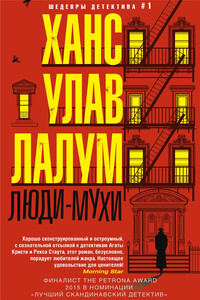
Убит бывший лидер норвежского Сопротивления и бывший член кабинета министров Харальд Олесен. Его тело обнаружено в запертой квартире, следов взлома нет, орудие убийства отсутствует. На звук выстрела к двери Олесена сбежались все соседи, но никого не увидели. Инспектор уголовного розыска Колбьёрн Кристиансен считает, что убийство, скорее всего, совершил кто-то из них. Более того, он полагает, что их показания лживы.
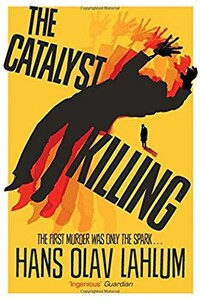
The third mystery in the hugely compelling, bestselling international crime series from Norway's answer to Agatha Christie, Hans Olav Lahlum, The Catalyst Killing will have you guessing to the final clue. The first murder was only the spark… 1970: Inspector Kolbjorn Kristiansen, known as K2, witnesses a young woman desperately trying to board a train only to have the doors close before her face. The next time he sees her, she is dead… As K2 investigates, with the help of his precocious young assistant Patricia, he discovers that the story behind Marie Morgenstierne's murder really began two years ago, when a group of politically active young people set out on a walking tour in the mountains.
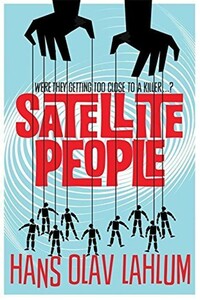
A gripping, evocative, and ingenious mystery which pays homage to Agatha Christie, Satellite People is the second Norwegian mystery in Hans Olav Lahlum's series. Oslo, 1969: When a wealthy man collapses and dies during a dinner party, Norwegian Police Inspector Kolbjorn Kristiansen, known as K2, is left shaken. For the victim, Magdalon Schelderup, a multimillionaire businessman and former resistance fighter, had contacted him only the day before, fearing for his life. It soon becomes clear that every one of Schelderup's 10 dinner guests is a suspect in the case.
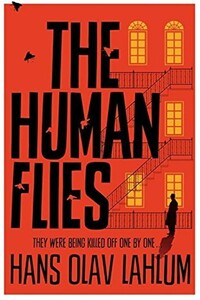
Oslo, 1968: ambitious young detective Inspector Kolbjorn Kristiansen is called to an apartment block, where a man has been found murdered. The victim, Harald Olesen, was a legendary hero of the Resistance during the Nazi occupation, and at first it is difficult to imagine who could have wanted him dead. But as Detective Inspector Kolbjorn Kristiansen (known as K2) begins to investigate, it seems clear that the murderer could only be one of Olesen's fellow tenants in the building. Soon, with the help of Patricia – a brilliant young woman confined to a wheelchair following a terrible accident – K2 will begin to untangle the web of lies surrounding Olesen's neighbors; each of whom, it seems, had their own reasons for wanting Olesen dead.
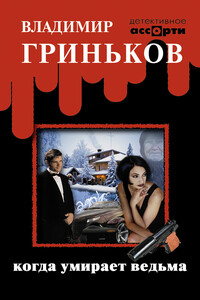
Новый роман Владимира Гринькова «Когда умирает ведьма» увлекает необычным колдовским сюжетом. Однако мистики в нем не больше, чем в жизни самых обычных людей. Девушка, которая делает все возможное и невозможное, чтобы получить высокооплачиваемую работу, частный детектив, богатый бизнесмен, журналист, специализирующийся на скандальной хронике, деревенская бабка-знахарка — судьбы героев причудливо переплетаются с тем, чтобы сложиться в единственную и неповторимую картину, предопределенную загадочной Судьбой.

Молодой и дерзкий журналист Виктор Вавилов, главный редактор глянцевого журнала, находится на грани нервного срыва. Кредитор требует срочного возврата долга, угрожая физической расправой; любимая жена, кажется, собирается подать на развод; подчиненные на работе явно не готовы выполнять поставленные задачи. Все меняется, когда в руки Виктора попадает видеокамера его друга, телевизионного оператора. Нужно просто нажать кнопку «rec» — и все будет… хорошо?
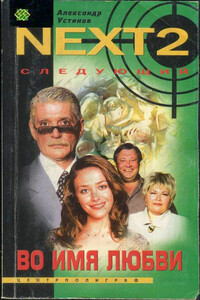
Книга написана по сценарию известного российского драматурга А.В. Тимма.Шайка Ангелины Виннер продолжает борьбу. Им удается похитить Ольгу Кирсанову, жену убитого хозяина «Империи». Сын Ольги Ваня ради спасения матери отказывается от своих прав на фирму. Враждебный лагерь празднует победу, но… преждевременно! В руках у Лавра козырная карта — завещание, и, обнародовав его, он ломает планы своих врагов. Остановятся ли бандиты, или кто-то снова окажется их следующей жертвой?
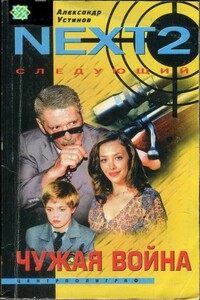
Книга написана по сценарию известного российского драматурга А.В. Тимма.Франц Хартман и Ангелина Виннер, подстроившие автокатастрофу, в которой погиб хозяин «Империи» Владимир Кирсанов, намерены идти до конца. Теперь они замышляют убийство его жены Ольги и несовершеннолетнего сына Вани, наследника «трона». Волею случая Лавру суждено сыграть роль доброго ангела в судьбе женщины и ребенка.
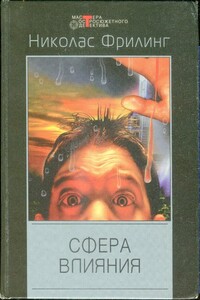
Обстоятельный и дотошный инспектор амстердамской полиции Ван дер Вальк расследует странное убийство домохозяйки («Ать-два!»). Героям известного автора детективов предстоят жестокие испытания, прежде чем справедливость восторжествует.
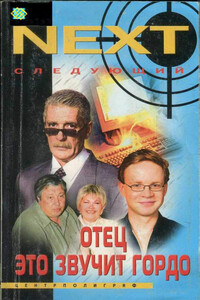
Книга написана по сценарию известного российского драматурга А.В. Тимма. На страницах романа вы встретитесь со старыми знакомыми, полюбившимися вам по сериалу «NEXT», — благородным и великодушным Лавром, его сыном Федором, добродушным весельчаком Санчо и решительной Клавдией. Увлекательное повествование вводит в мир героев, полный настоящих рыцарских подвигов и романтических приключений.